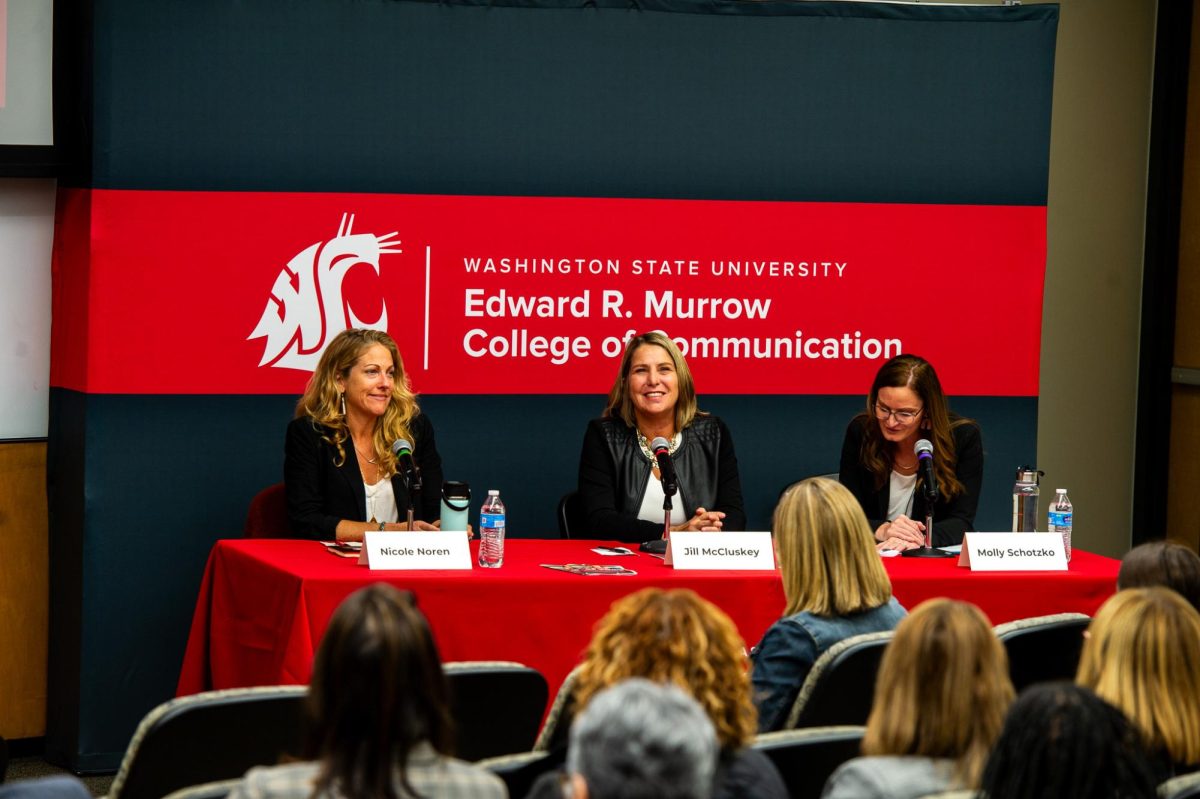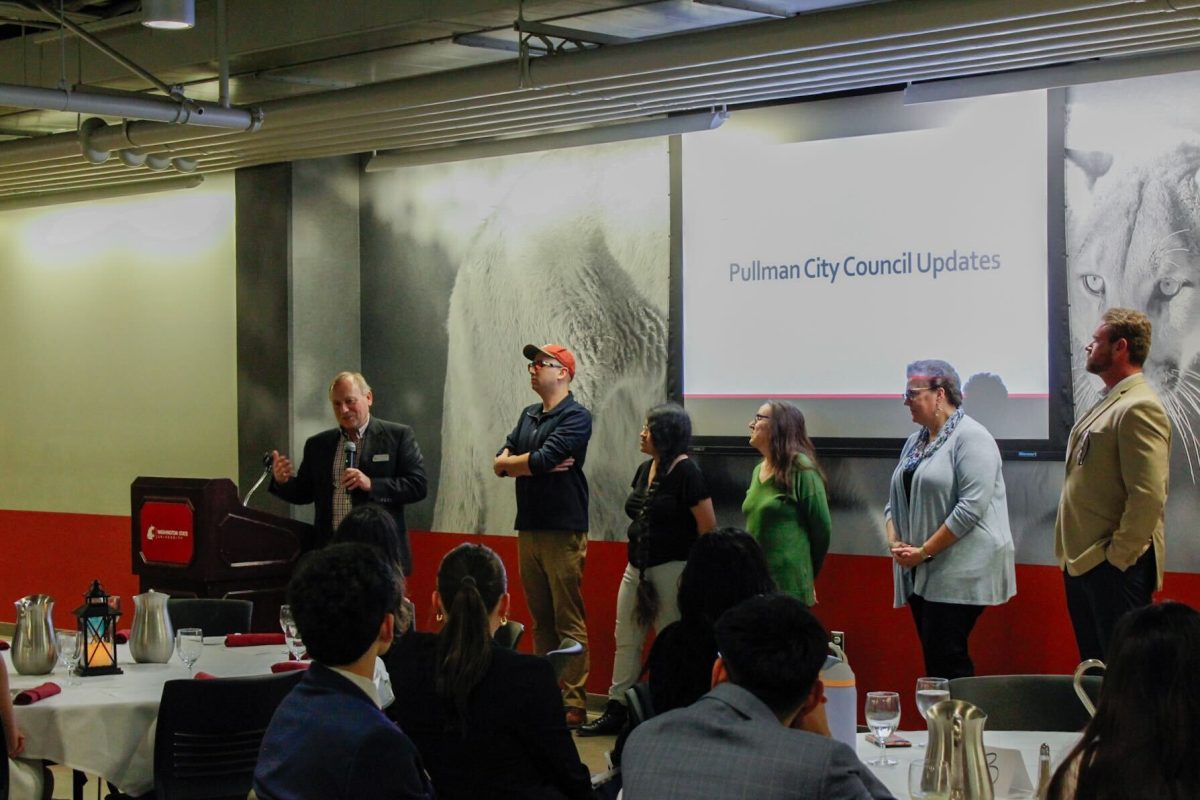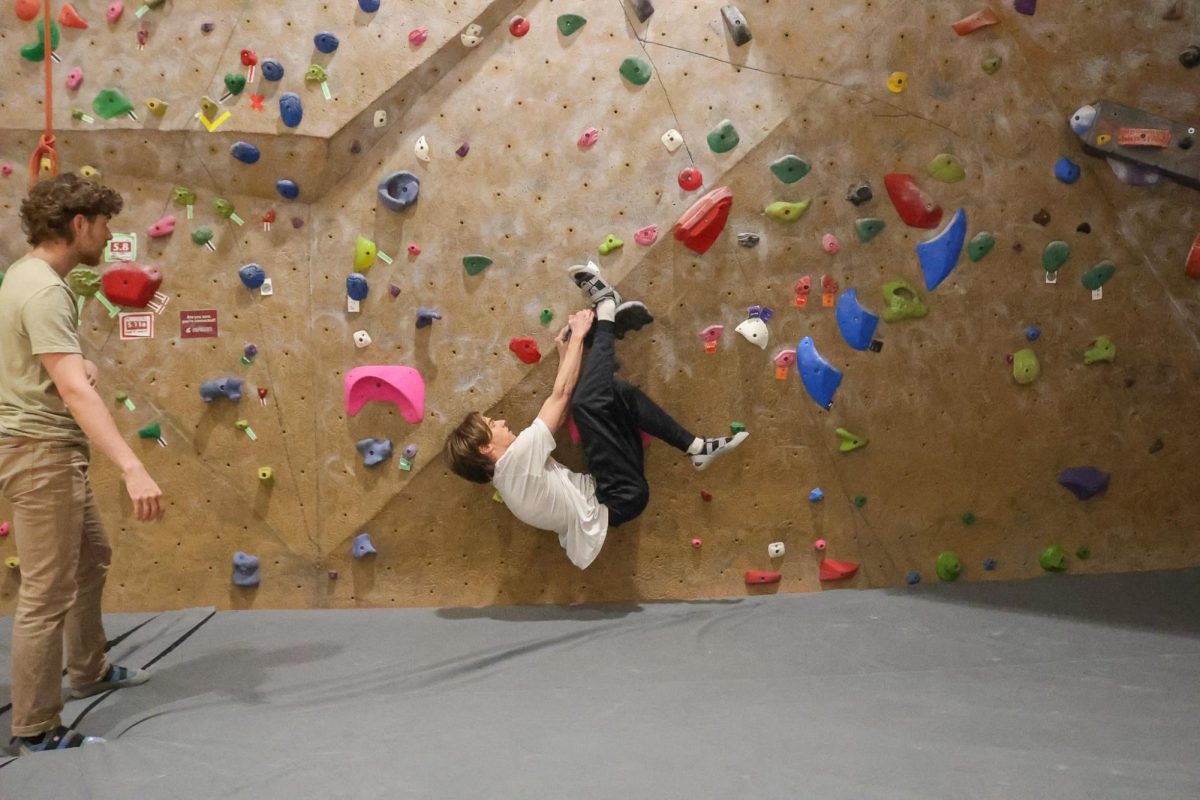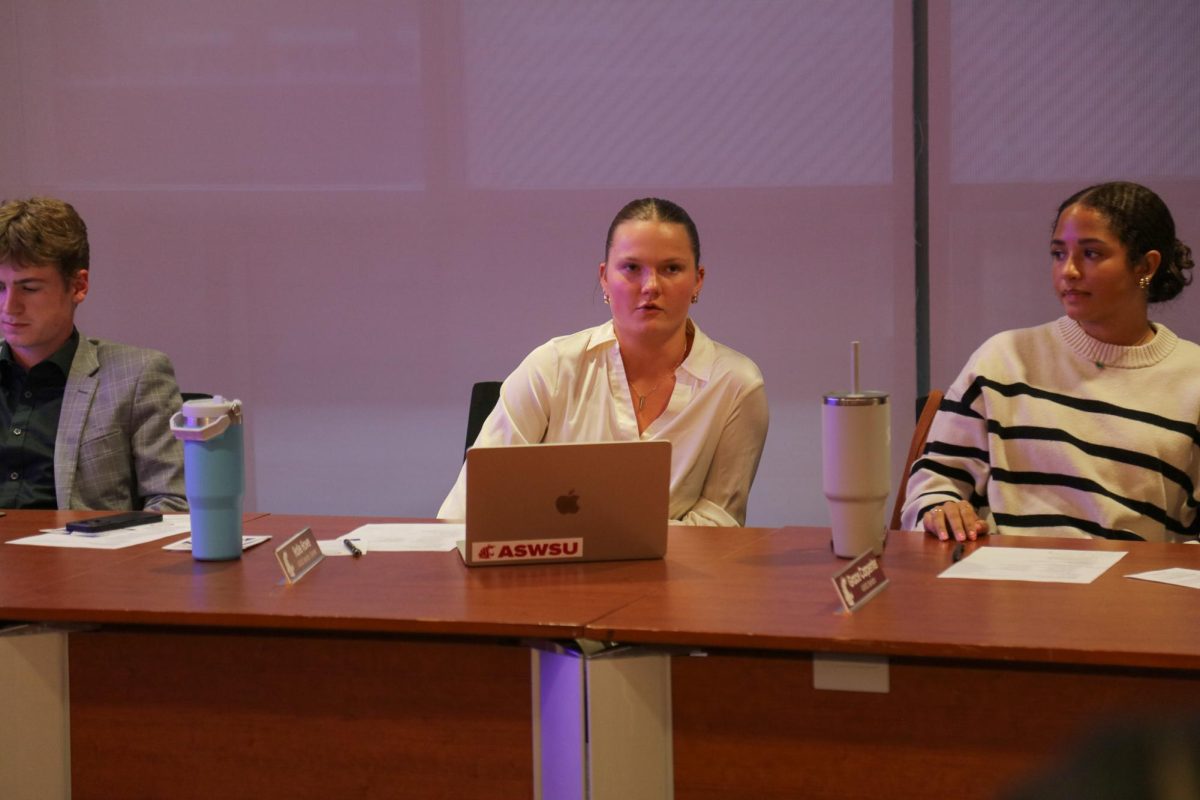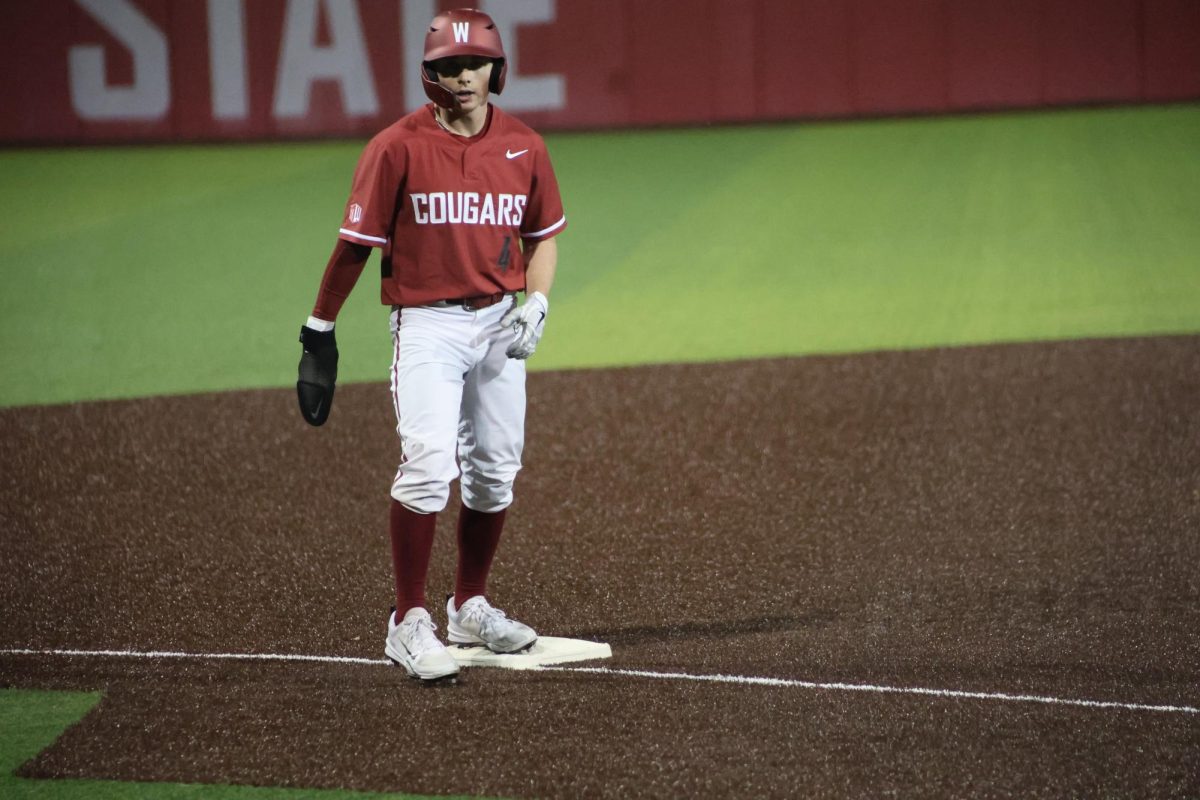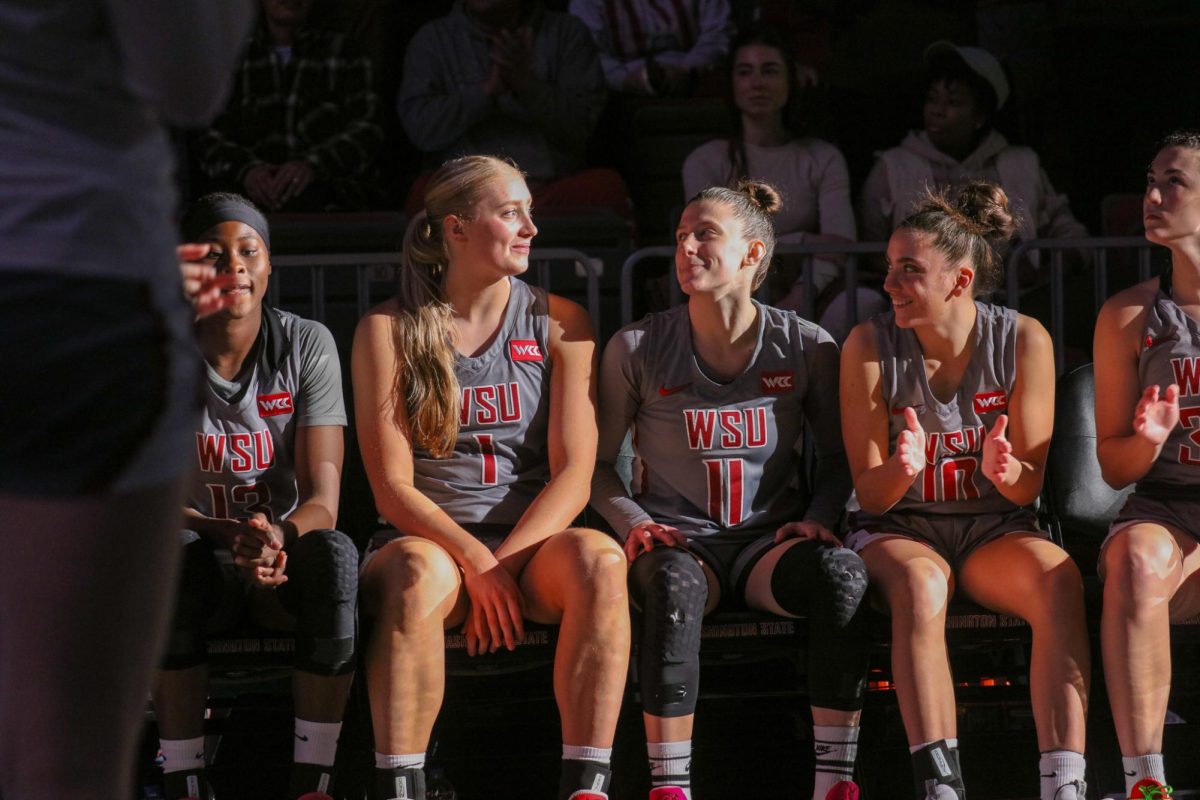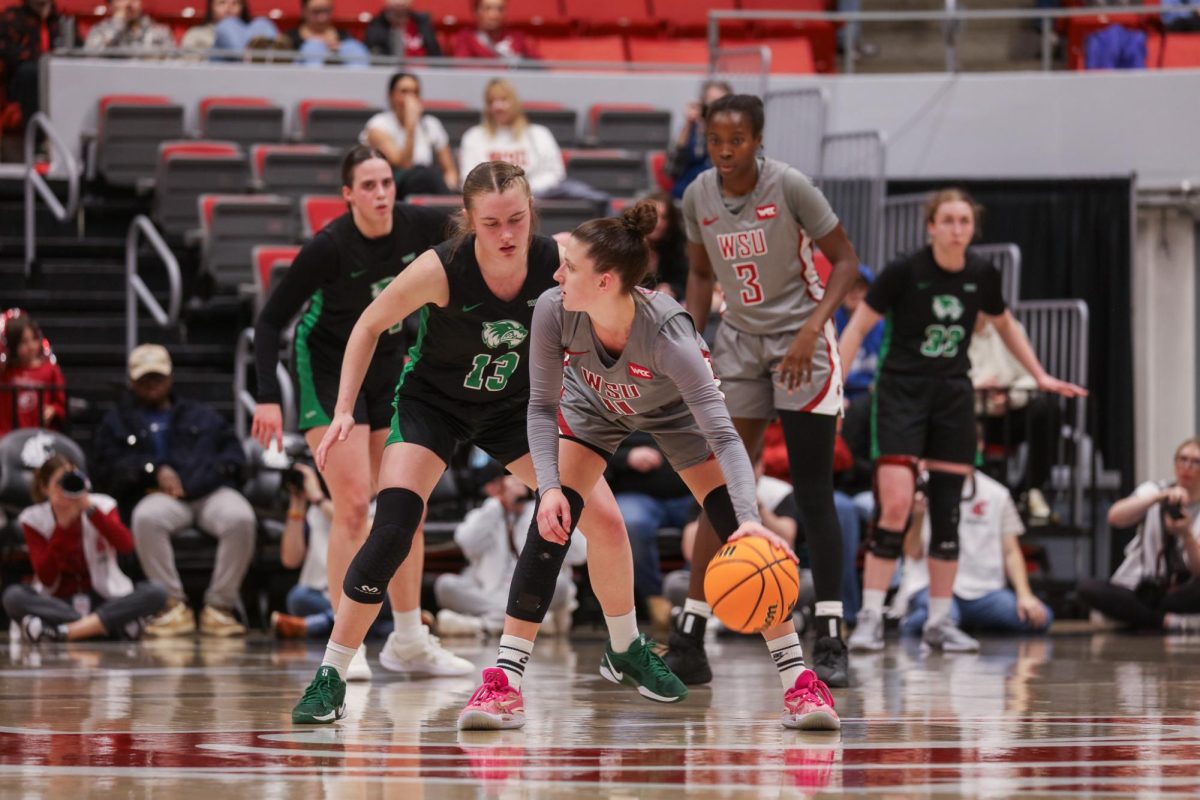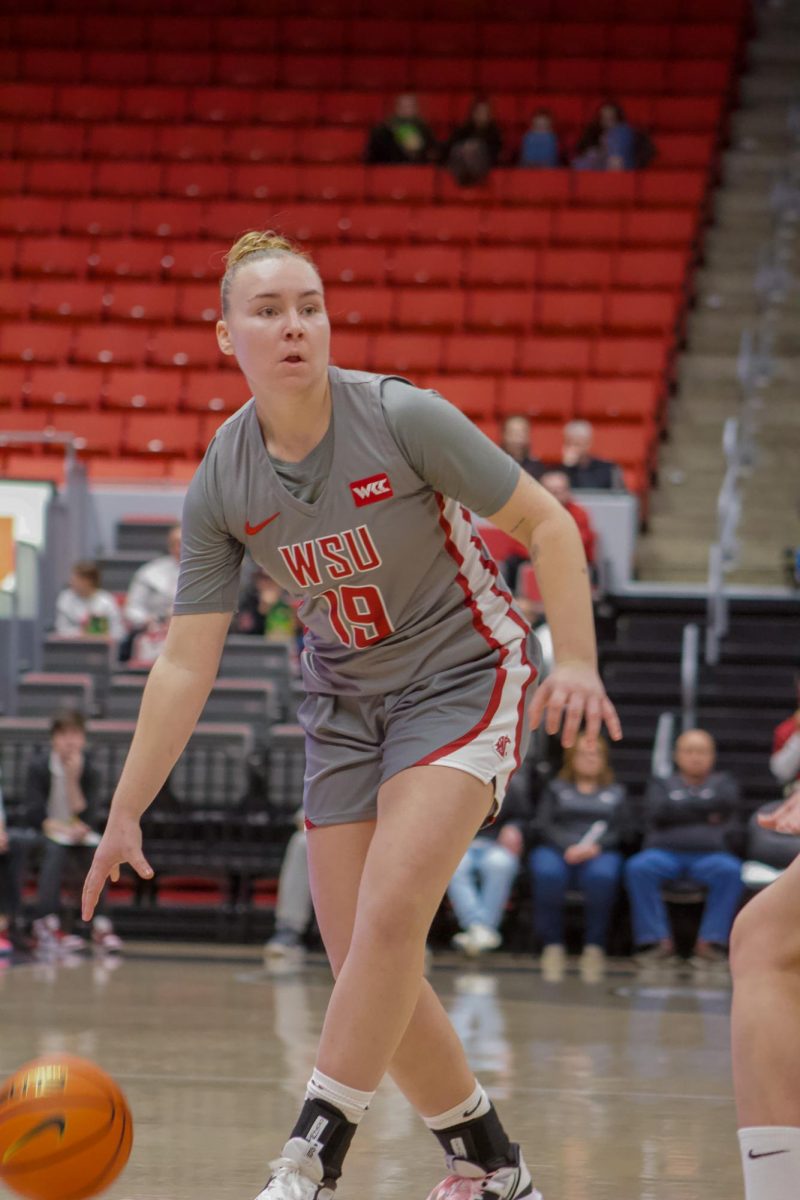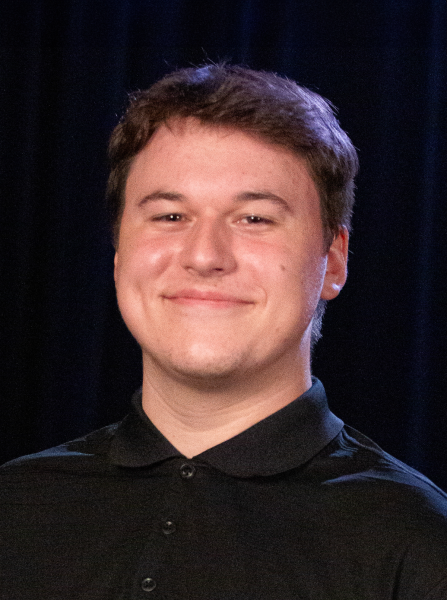“I will listen and believe you if someone is threatening you.”
So reads Lauren’s Promise, a vow created by the Lauren McCluskey Foundation with the intention of protecting victims of sexual assault, domestic/intimate partner violence or stalking. Lauren’s Promise is a reminder of the power of voice.
The Edward R. Murrow College of Communication hosted a panel titled “Evoking Change: The Lauren McCluskey Story” as a part of the “Power of Voice” speaker series Tuesday afternoon in Goertzen Hall.
Moderated and co-developed by Murrow scholarly assistant professors Molly Schotzko and Wendy Raney, the panel served as an opportunity for conversation regarding the importance of communication-driven change in the wake of the death of Lauren McCluskey, 21, a University of Utah student-athlete who was murdered in 2018.
Panelists were Jill McCluskey, Lauren’s mother and co-founder of the Lauren McCluskey Foundation, Nicole Noren, ESPN investigative journalist and producer of the film “Listen”, Jani Iwamoto, former Utah state senator and attorney and Devon Cantwell-Chavez, Ph.D. candidate and former graduate student at the University of Utah.
A Murrow screening of the ESPN documentary “Listen,” co-produced by Noren, was open for viewing Monday afternoon prior to Tuesday’s panel. The 90-minute documentary explores the weeks leading up to Lauren’s death and investigates the lack of action surrounding her case.
Lauren’s voice
In the weeks leading up to her death, her ex-boyfriend Melvin Rowland stalked and extorted her. Despite raising repeated concerns to campus police and local authorities, her claims went uninvestigated.
On Oct. 22, 2018, Lauren died at the hands of her ex-boyfriend. Though she followed all the correct steps a victim is encouraged to take in situations regarding intimate partner violence, Lauren’s voice and pleas for help were ignored.
Communication as a catalyst
The night of Lauren’s murder, the media had already begun to release false information about Lauren and the nature of her relationship with Rowland, Jill McCluskey said.
Jill McCluskey wrote and posted a statement to Twitter on Oct. 23, 2018, clarifying the details of Lauren’s death, explaining the gravity of what her daughter had been struggling with the weeks prior, Jill McCluskey said.
With her post, she also wanted the world to know who Lauren was: an Honors student, an athlete, a singer and a young woman who cared about other people.
“I felt obligated to her that I needed to correct the narrative,” Jill McCluskey said.
McCluskey, who is also a Regents professor of economic sciences at Washington State University, said that she began to realize the power of her own voice. She made a pledge to her own students who may be struggling with intimate partner violence to support, believe and provide them with the appropriate resources. Lauren’s Promise was born.
“If I can make that promise on my course syllabus to all my students, then they are invited to let me know and I can help speak for them on their behalf,” Jill McCluskey said.
Through the power of social media and global communications, people all over the world have made Lauren’s promise, Jill McCluskey said.
The power of investigative reporting has additionally allowed for Lauren’s voice to be heard. With almost 3 million views on YouTube, Noren’s work in “Listen” offers a thorough timeline of the harassment Lauren experienced.
Noren and fellow investigative reporter TJ Quinn invested four years into the creation of the documentary, piecing together an in-depth portrayal of Lauren’s story, highlighting what happened and what exactly went wrong.
The documentary features never-before-seen footage of Lauren in the weeks leading up to her death, a dive into Rowland’s criminal history and interviews from individuals affiliated with the case who had never spoken out before.
The documentary has had the desired impact and continues to inspire change, Noren said.
“Numerous campus police departments had reached out from across the country trying to get access to the film before it was on YouTube,” Noren said. “There are police who have been creating curriculum for it, and using it in their academies for training. Many campuses have also reached out and are using it in campus safety conferences.”
Noren, whose reporting work focuses on gender-based violence and situations similar to Lauren’s, said that those working in communications have the power to spread messages that can bring awareness to the warning signs of domestic and intimate partner violence and prompt the appropriate consequential responses.
“If change doesn’t happen through the people who are listening and through the people who are receiving those messages, those voices are powerless,” Noren said. “It’s really important to have a voice, but it’s also very critical to point out that listening and action need to happen when people take that brave step to come forward and speak out when either themselves or people close to them are having issues.”
Institutional and cultural shifts
Cantwell-Chavez was a graduate student at the University of Utah at the time of Lauren’s death in 2018.
Alongside other students at the University of Utah, Cantwell-Chavez took to social media in the wake of Lauren’s murder to create UnsafeU, an advocacy group that calls attention to matters of student safety at the University of Utah.
Change must come from two different levels, both institutionally and culturally, Cantwell-Chavez said.
Iwamoto’s support and push for adequate legislation that would amend campus safety in the state of Utah have helped to provide the change needed at an institutional level. Utah SB 134, sponsored by Iwamoto and supported by Lauren’s parents, was approved March of 2019 and looks at campus safety plans.
The structure and culture of law enforcement are also key to preventing future scenarios like Lauren’s, Iwamoto said.
“It should have never happened, what happened to [Lauren]. But it became a part of every legislative bill since then that I did, whether it be domestic violence, police reform, whatever. Lauren’s life and what she went through has been a part of everything I do going forward,” Iwamoto said.
Women helping women
Created and headlined by an all-women team, “Evoking Change: The Lauren McCluskey Story” was part of a larger conversation regarding a gender-based issue.
Lauren’s story as a whole was covered by a large number of women seeking out the truth, Noren said.
“Jill and Matt are the heroes in this, to continue to give Lauren a voice and to create change. Many parents couldn’t even get through something as tragic as this,” Noren said.
In the wake of Lauren’s death, McCluskey found support and the encouragement to keep pushing for change within the women who were featured on Tuesday’s panel, McCluskey said.
“These are my heroes,” McCluskley said.
Resources for those in need
Per the mission of the Lauren McCluskey Foundation, Washington State University is one of over 200 institutions nationwide to abide by Lauren’s Promise: “I will listen and believe you if someone is threatening you.”
WSU students seeking help for themselves or others can also find support with Alternatives to Violence of the Palouse (509-332-HELP or atvp.org) and with WSU Cougar Health Services (509-355-4511 or cougarhealth.wsu.edu).


